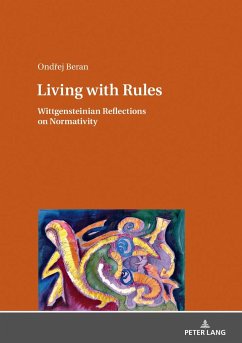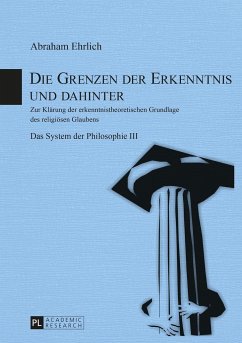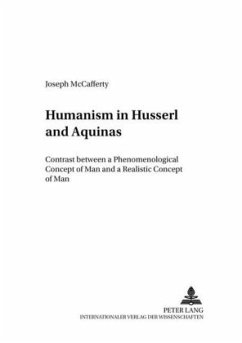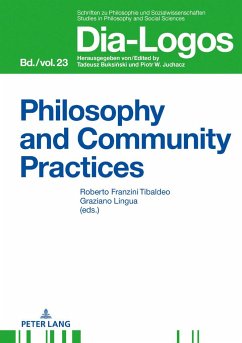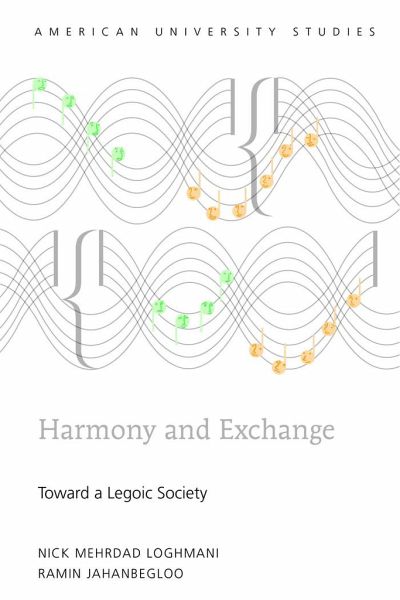
Harmony and Exchange
Toward a Legoic Society
Versandkostenfrei!
Versandfertig in 6-10 Tagen
113,45 €
inkl. MwSt.
Weitere Ausgaben:

PAYBACK Punkte
0 °P sammeln!
This book examines two main concepts - harmony and exchange - in relation to the social, political, economic, and cultural dimensions of human life. As such, what differentiates humans from other living species are the possibility of understanding a context and the willingness to collaborate and create complex models of exchange. Specifically, emotion and intellect are established as fundamental dimensions of our being which play key roles in exchange with others and dealing with our environment.This text provides a new perspective that examines «being and becoming» in a multidimensional exc...
This book examines two main concepts - harmony and exchange - in relation to the social, political, economic, and cultural dimensions of human life. As such, what differentiates humans from other living species are the possibility of understanding a context and the willingness to collaborate and create complex models of exchange. Specifically, emotion and intellect are established as fundamental dimensions of our being which play key roles in exchange with others and dealing with our environment.
This text provides a new perspective that examines «being and becoming» in a multidimensional exchange framework, concentrating on the analysis of a utilitarian society which reduces human beings to operators and servants of techno-scientific machinery. This approach to validity demands conformity to social and political norms which have lost touch with the intellectual and emotional expressions of the citizens of the world, resulting in an environment of alienation, violence,and subordination of humans to meaningless institutions and positivistic ideologies. The quest for true harmony and collaborative exchange in contemporary societies requires the recognition of multiple sites of subjectivity, self-certainty, and global domination of techno-scientific rationality. This book's primary application towards a Legoic society is built on a critical pedagogy committed to dialogue and exchange, and is an environment that is accompanied by the process of development of a critical consciousness based on new systems of agency, moving toward a fundamentally non-reductionist praxis of the socio-political dimension of living together.
This text provides a new perspective that examines «being and becoming» in a multidimensional exchange framework, concentrating on the analysis of a utilitarian society which reduces human beings to operators and servants of techno-scientific machinery. This approach to validity demands conformity to social and political norms which have lost touch with the intellectual and emotional expressions of the citizens of the world, resulting in an environment of alienation, violence,and subordination of humans to meaningless institutions and positivistic ideologies. The quest for true harmony and collaborative exchange in contemporary societies requires the recognition of multiple sites of subjectivity, self-certainty, and global domination of techno-scientific rationality. This book's primary application towards a Legoic society is built on a critical pedagogy committed to dialogue and exchange, and is an environment that is accompanied by the process of development of a critical consciousness based on new systems of agency, moving toward a fundamentally non-reductionist praxis of the socio-political dimension of living together.





